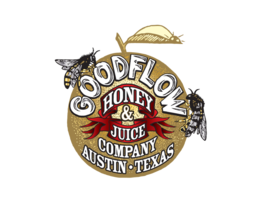What is "raw" honey?
Raw honey has not been heated or filtered, which allows more of the natural taste and nutrition of the nectars, beeswax, pollen and propolis to be experienced. Propolis is the resinous substance that bees collect from tree buds. It is used as a sealant in unwanted cracks and crevices to protect the hive. When honey is collected it will contain remnants of all these ingredients. Raw honey is stable and can be stored indefinitely.
Does honey expire?
Honey is anaerobic with low moisture content so it does not harbor bacteria, and therefore is shelf stable indefinitely. It does crystallize over time, but this does not lessen the taste or nutritional quality of the honey. Valuable nutritional compounds will begin breaking down once a temperature is reached of about 120 degrees Fahrenheit. Optimum storage temperature is about 72 degrees Fahrenheit. Cold temperature won't hurt it, but will hasten the crystallization process. If you heat honey to about 170 degrees Fahrenheit it will become "pasteurized" and will not crystalize.
What is the difference between your "raw" honey and 100% pure honey?
Our raw honey, sold in glass jars, is unheated and unfiltered. Our pourable honey has been filtered and gently heated to allow for easy pouring. All of our honey is 100% pure, and essentially raw, since we heat it to a maximum temperature of 120 degrees Fahrenheit.
You may notice crystals in your pourable honey. This process occurs over time due to the natural sugars separating from the water and developing crystals. These crystals are safe to consume but if you prefer to have it back in its liquid state, gently heat the honey until the crystalize have dissolved and store as normal.
What can I do to help the bees?
Plant bee-friendly flora that is native to your area! Provide fresh water outside your home for the bees and all our critters. Do not use chemicals on your lawn & garden. If you must battle, keep the bees in mind. Bees usually do not forage at night. Lastly, urge your local Parks & Recreation Department & Transportation Department to plant bee-friendly, self sustaining shrubs and trees. Mesquite has saved our bees from summer drought and brutal heat. Vitex, Crepe Myrtles, and Mountain Laurel are also great survivors and good nectar producers. Personally, I love Goldenrod and desert willows. They are indigenous and beautiful in the fall.
Where can I find your products?
Many Texas retailers stock our products for you to shop in person. HEB, Central Market, Whole Foods, Fresh Plus, Randall's, Wheatsville, Natural Grocers, Sprouts, and Walmart -- to name a few. We will also be offering online shopping here on our website!
Do you sell in bulk?
Yes, we do! Please contact our office at (512)472-6714 for more info & bulk pricing.
Message us with any questions using the form on our Contact page, or send us an email at info@goodflowhoney.com.

